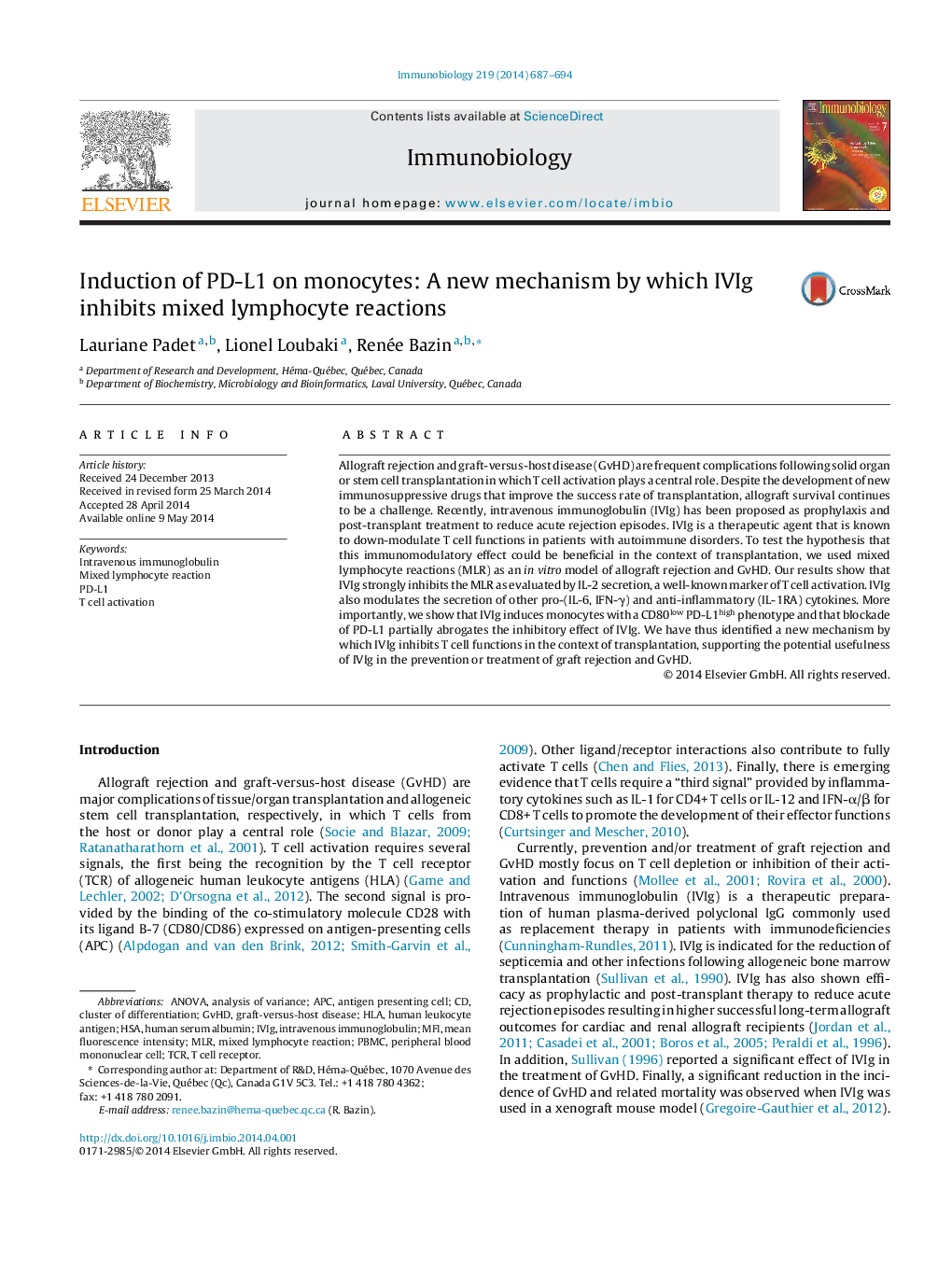| Article ID | Journal | Published Year | Pages | File Type |
|---|---|---|---|---|
| 2183164 | Immunobiology | 2014 | 8 Pages |
Allograft rejection and graft-versus-host disease (GvHD) are frequent complications following solid organ or stem cell transplantation in which T cell activation plays a central role. Despite the development of new immunosuppressive drugs that improve the success rate of transplantation, allograft survival continues to be a challenge. Recently, intravenous immunoglobulin (IVIg) has been proposed as prophylaxis and post-transplant treatment to reduce acute rejection episodes. IVIg is a therapeutic agent that is known to down-modulate T cell functions in patients with autoimmune disorders. To test the hypothesis that this immunomodulatory effect could be beneficial in the context of transplantation, we used mixed lymphocyte reactions (MLR) as an in vitro model of allograft rejection and GvHD. Our results show that IVIg strongly inhibits the MLR as evaluated by IL-2 secretion, a well-known marker of T cell activation. IVIg also modulates the secretion of other pro-(IL-6, IFN-γ) and anti-inflammatory (IL-1RA) cytokines. More importantly, we show that IVIg induces monocytes with a CD80low PD-L1high phenotype and that blockade of PD-L1 partially abrogates the inhibitory effect of IVIg. We have thus identified a new mechanism by which IVIg inhibits T cell functions in the context of transplantation, supporting the potential usefulness of IVIg in the prevention or treatment of graft rejection and GvHD.
